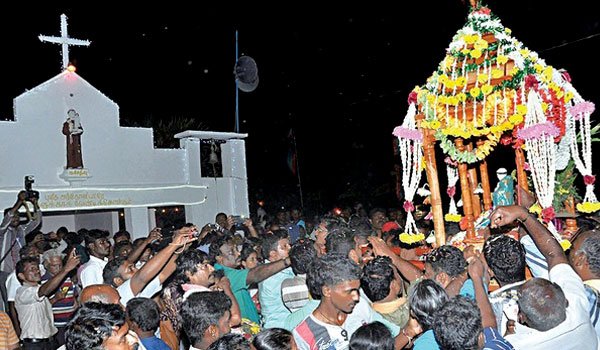Instead, they get to learn only about the glory of the Sinhala kings and their contribution to the growth of Buddhism in the island nation. “Our History textbooks up to Class X emphasise that the Sinhala kings alone are the legitimate rulers of Sri Lanka and only their clan has the ability to govern the country. If Tamil-speaking students requested their teachers to enlighten them on the Tamil kings and their contribution, the fellow Sinhala classmates mock them,” rued a student, who came with his family to the St Antony’s Church festival at the uninhabited Katchatheevu island in Palk Bay.
If the Tamil students persisted, they would be chided saying, “Why are you asking irrelevant questions. Just follow the syllabus.”
“Even our teachers back the Sinhalese students,” said another student, adding, “The irony is that our History teacher is a Tamil.”
The History textbooks glorify the achievements of King Mahasen Dutugemunu (who won a war against Tamil kings), Weera Parakara Maha Bahu and Kashyapan. They were the kings who ruled Sri Lanka before the colonial intervention. “The teacher tells us these kings were known for their valour and ruling ability. They also supported Buddhist monks and helped them construct Buddhist monasteries and stupas,” said a secondary school student.
“We were told by our teachers that some of these kings fought against the British hiding in the forest using traditional weapons skillfully,” said a student. The teachers emphasise that the power should be transferred only within the royal family.
“Five years have gone by since I joined school and not even one Tamil king’s name has been discussed in our classroom,” said a senior secondary grade student. “The Tamil textbooks also deal only with grammar while poems and contribution of Tiruvalluvar or Bharathiar are not elaborated or described,” said another student on the syllabus.
(newindianexpress.com)






